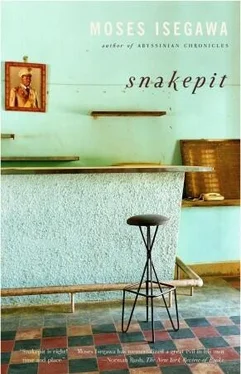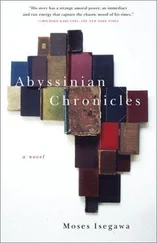War was in the air and Hitler’s name was on people’s lips. Ashes drifted and finally became a courier in the underworld: liquor, drugs, dirty money. There was robbery, extortion, arson and racketeering. At nineteen he enlisted and was rewarded with proper military training, discipline and a wide knowledge of arms. With his characteristic fearlessness, he made an excellent soldier. He was sent to North Africa and fought against the remnants of German forces. Africa was a revelation: the space, the skies, the sand, the opportunities. He was later transferred to East Africa, stationed in Kenya. The Coast was a dream, a tantalizing morsel bringing to mind the escapades of hedonistic gangsters. The Kenyan Highlands, the mountain ranges, a vision of majesty. For the first time in his life, he thought there might be a God. He knew that he would return some day. With the cash and freedom to enjoy all of it. He gradually got bored because there was no fighting. He still wanted to be in the thick of things, to garner more experience; he wanted to leave the force a honed fighter, a one-man army.
Back in Britain he asked to be discharged as the war had ended. Many of his former colleagues were dead or maimed; together with the few he could find, he entered the construction industry with a vengeance and used his skills to extort, kidnap and amass a fortune. American aid was flowing into the country, and it was a wonderful time for those with the will to fight their way up the hierarchy of their chosen trade. With time his wanderlust rose and his life seemed too predictable, too easy, smelling a bit like his father’s past of petty bossing and bitching. He was itching to return to Africa and he flirted with the idea of becoming a pirate. A friend pointed him to the possibility of becoming a mercenary, hiring himself to the highest bidder as a military instructor to sprouting terrorist or guerrilla groups.
He enlisted to take the fight to the Mau Mau in post-war Kenya; it was his kind of thing: the hunter and the hunted, the vague lines between right and wrong. The frightened whites and the agitated blacks turned him on. He loved the interrogations because they reminded him of the underworld he knew so well. He pulled teeth and nails, and sliced kneecaps; he got the name the Guardian Angel. In his book, both sides were right and that made it fun. He secretly admired the stubborn resistance of the Mau Mau, especially because when he was young, he had heard the Africans described as cowardly and unable to fight. These blacks were fighting a modern European state to the death, and he thought he would have done the same if he had such beautiful mountains to defend. It was ironic that he worked harder now and saw more horrors than he had during the war. Immersed in the fighting in Africa, the World War seemed very far away. What had it been about? Freedom? Camps? Totalitarianism? Democracy? Or money?
Yes, money. The fight against the Mau Mau was fun, but there was no big money in it. Part of him was spoiled now and he craved thousands, hundreds of thousands. He wanted out; let the blacks and the whites settle their problems. At about that time, a British intelligence officer offered him the chance to become a spy. He could go to Rhodesia, Namibia, South Africa. Southern Africa beckoned because of the diamonds and gold. A deal or two and he would be done. The end of the sixties found him in South Africa, the beginning of the seventies, in Rhodesia. The fighting was good, the diamond trafficking legendary. The celestial trinity of danger, death and money was as seductive as ever. He took his time and made one big haul. A kilo of uncut diamonds landed in his hands after a year’s planning, and then there was a monstrous shoot-out. He was shot in the leg, and he crawled and limped past corpses, and wandered for four delirious days. At one time, he even vowed to stop with adventure-seeking. A white farmer picked him up in his tractor, and later he was flown to South Africa, where he fell in love with Cape Town: its magnificence, its history, its wine. A year later he flew to London.
It was in London that he heard of Amin, a real animal. He started collecting newspaper cuttings about him. He went to the library and looked for more information about Amin and Uganda, reading Winston Churchill, Speke, Burton, Baker and Stanley. Gradually, his resolve to stop running after adventure slackened, and he now craved a massive fix, one last fling. Uganda seemed like a very good spot for it. His burgeoning plans were, however, poisoned by the mass expulsion of expatriates in 1972. He went to the airport and refugee camps, looking for eyewitness accounts of what was happening in Uganda. He was convinced that he would be the lion-tamer, the man to control Amin and enjoy that peculiar brand of fame. What he needed was a plan. He roamed the streets of London in a daze. He tried the British Embassy; they did not need him. He tried five missionary societies, both Catholic and Anglican; they rejected him. He became depressed, redundancy gnawing at him. Hijackers, terrorists, Cold War — mongers, were all having their time in the sun, yet life was passing him by and he was not becoming any younger.
The Irish Republican Army offered him a golden opportunity when they bombed the Grand Empire Hotel, killing members of the ruling Conservative Party, maiming others and causing terrible damage to property. News broke that Herbert Williams, the mastermind, had escaped to Africa. Many believed he was hiding in Uganda because Amin was flirting with the IRA, Black September and other nationalist organizations. The intelligence officer who had sent him to Rhodesia came to his aid; he was looking for somebody of his age suicidal enough to want to go to Uganda and check out the Williams rumours. Ashes signed immediately; soon he was part of a bogus British business delegation.
It was love at first sight between him and Marshal Amin. A month before, Dr. Ali had read omens from the livers of ten white bulls and promised the Marshal a saviour from abroad. The moment the delegation arrived, Marshal Amin knew that Dr. Ali had been right as usual. It turned out to be a meeting of kindred spirits. Marshal Amin needed support as his friends became fewer and his paranoia swelled to the size of a cathedral. Robert Ashes got the Anti-Smuggling Unit draft because of his knowledge of boats, and he advised the Marshal to build a navy. They discussed weapons, whisky, music. In due time he honed the Marshal’s paranoia and told him which general to demote, or send abroad as ambassador or place at the head of a phantom coup plot. He married a black woman and settled.
VICTORIA WAITED TWO MONTHS before breaking the news: the miracle had happened; she was pregnant. They were at the lake walking side by side on a Sunday afternoon. The sun was shining brightly, and apart from the noise of the birds in the trees the place was quiet. She held Bat’s hand, turned her head to look him in the eye and broke the news. He looked like somebody woken from a dream-laden sleep, the eyes slightly unfocused, the mouth a bit ajar, the brow creased pensively. His face wore a puzzled look, then relaxed into a neutral expression, neither happy nor sad, as if saying, What do you expect me to say?
“Pregnant.” The word seemed to stay in the air for a long time.
“Yes, I am two months pregnant,”she said cautiously, valiantly trying to dam her ecstasy.
“Why did you wait this long to tell me?”
“I wanted to make sure.”
“What do you want to do with it?”
“To keep it, of course.”
“Abort.” His voice seemed to come from afar, slightly tremulous, as if calling back his university days, when he had given such an order and it had been obeyed. His heart was pumping hard and he felt slightly out of breath.
“I want to keep the child.” Victoria’s voice was high, plaintive, her face troubled.
Читать дальше











